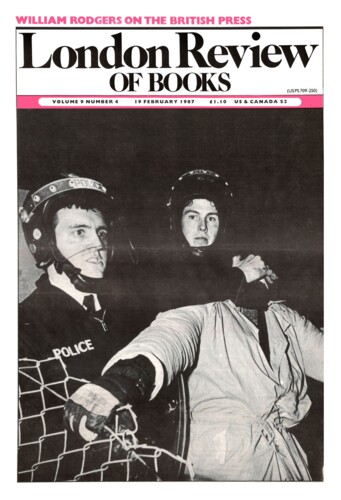Post-Scepticism
Richard Tuck, 19 February 1987
‘Scientists’ in our culture are (in many disciplines) people who perform ‘experiments’ in ‘laboratories’ and ‘testify’ about them to a wider community of like-minded people who then try to draw conclusions from the ‘facts’ put before them. The subject of this entertaining and important study is in effect the emergence of this practice and the removal of quotation-marks from these hitherto contentious or puzzling terms. Steven Shapin and Simon Schaffer are historians of ‘science’ who were led by their discontent with the hegemony of experimentation to study the controversy between Robert Boyle, patron saint or founding shaman of the experimental method, and his most profound and systematic opponent Thomas Hobbes: a controversy which began in 1661 with the publication of Hobbes’s Dialogus physicus de natura aeris and which continued in a variety of forms into the 1670s. Leviathan and the Air-Pump is the result of that study, and it includes as an appendix an almost complete translation (by Schaffer) of the Dialogus physicus.


